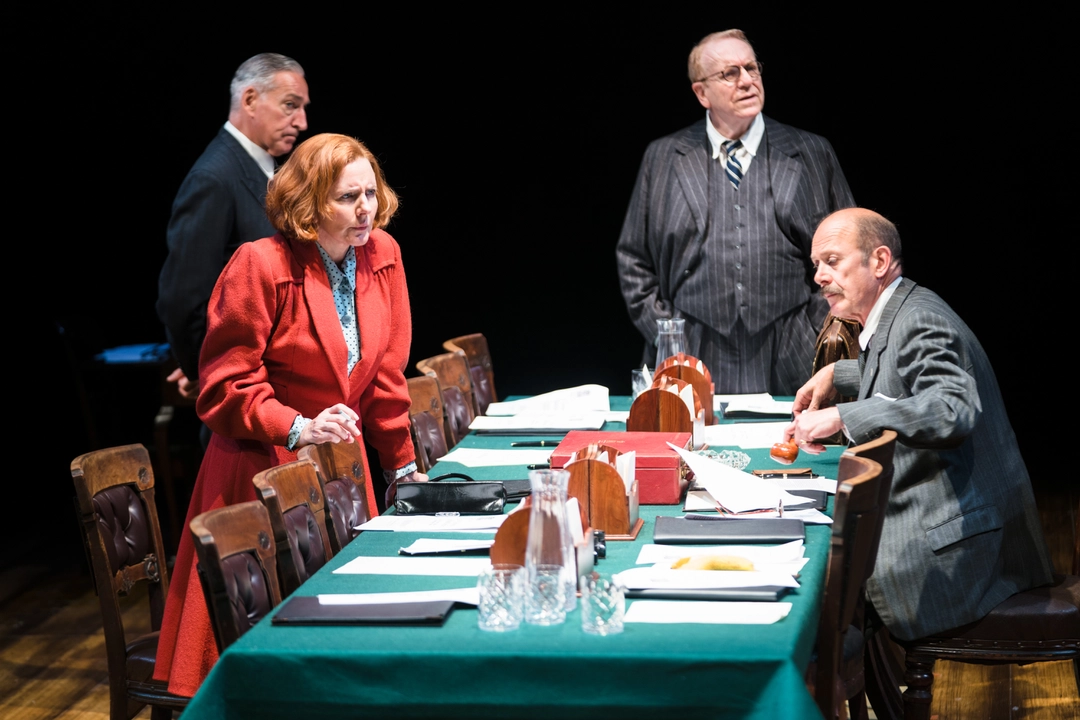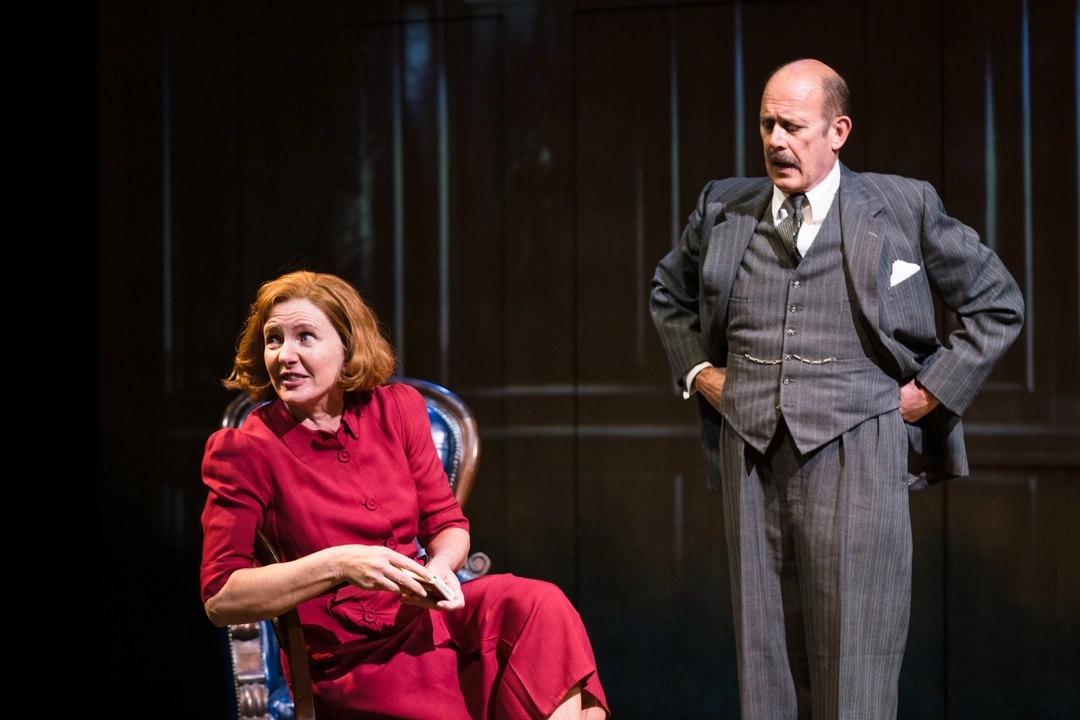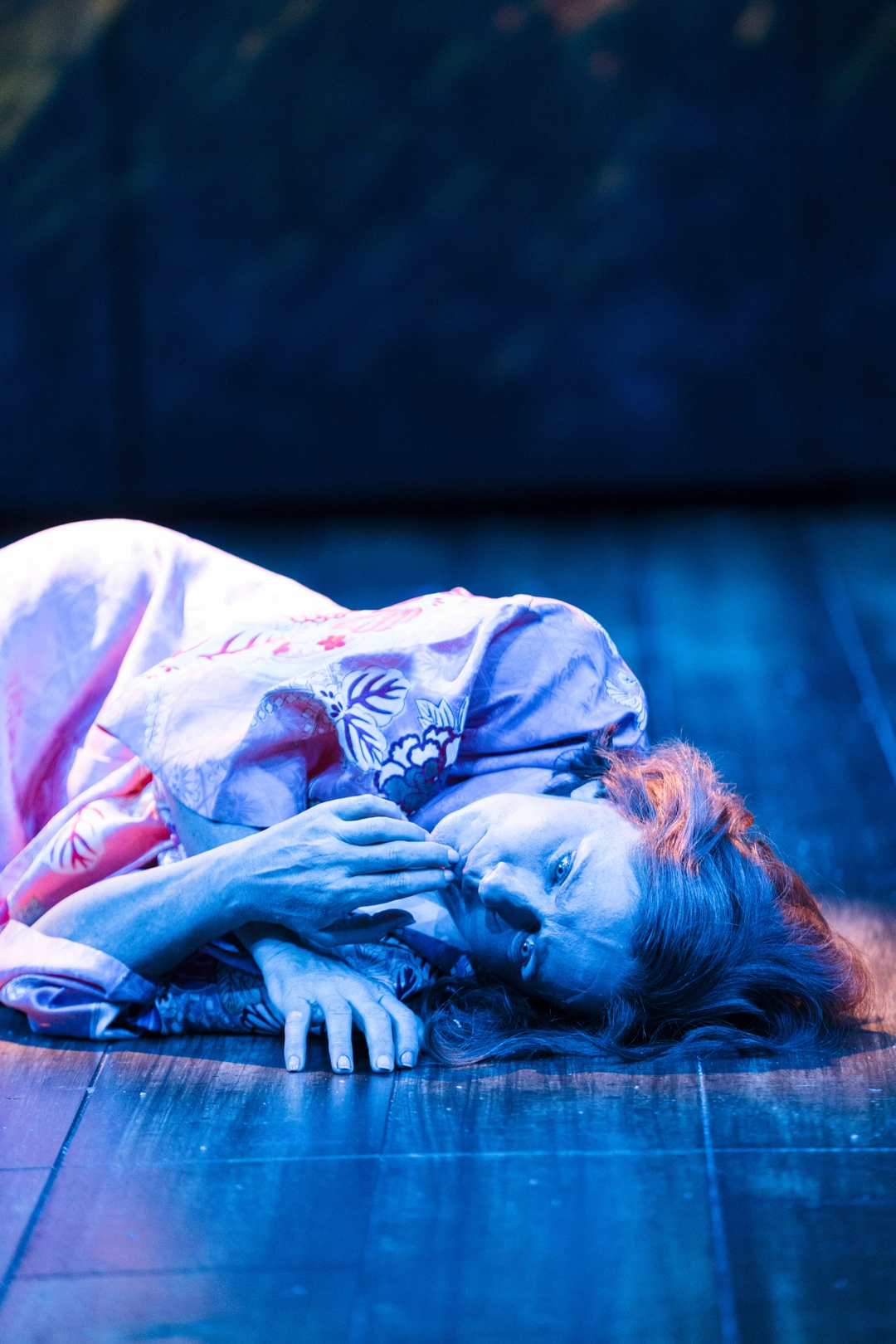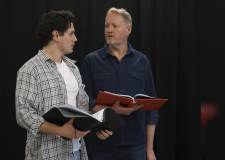THE PROMISE

Photo: Helen Murray
It’s post WWII and the Labour Party is about to win the general election in what turned out to be a landslide result. Sound familiar? Of course it does. Attlee is in charge but surrounded by an intimate group of cabinet ministers all of whom have very different agendas and in the mix is Nye Bevan, the Welsh MP who is the driving force behind the creation of the National Health Service, a man who has become a sainted figure in British politics and society.
From the marketing material one might have thought that the play would be, at its heart, about the NHS and the staff who form the bedrock of the institution. Nothing could be further from this. The play is about the political machinations in the cabinet room and very much about the firebrand MP Ellen Wilkinson.

Photo: Helen Murray
Clare Burt opens the play with a stirring call to arms at a Labour Party conference, and she is marvellous, at that point one hoped that the play would be about her amazing, and less spoken about career. But sadly it isn’t. It features her strongly yes, and it is a very fine performance to be sure, but the structure of the drama lurches around. One minute focusing on her, the next on Attlee, Ernie Bevin, Herbert Morrison, Stafford Cripps with passing moments for Violet Attlee and Jennie Lee and of course Nye Bevan. But the whole is muddled. Herbert Morrison’s affair with Wilkinson features large, but why? Bevan has one very long and powerful speech about creating a health service for all in a cabinet room where apparently he has very little support and later we are told that he was in fact easily bought by the powerful Lord Moran, personal doctor to Winston Churchill. Bevan debunked in part, his saintly robes tarnished.
All fascinating stuff yes, but structurally the play jumps about. Morrison comes to Wilkiinson’s bedside when she collapses on a train and Churchill sends his doctor to tend to her in Birmingham. Bevan gives in to senior doctors and the pharmaceutical industry but works on plans for social housing. Everyone worries about Wilkinson’s health and then she dies. In a final fantasy scene, collapsed in a snow storm, Churchill himself appears and delivers a long speech. He is dead, a ghost haunting her as she slips away, but Wilkinson died in 1947 and Churchill in 1965, a strange shift in time. And the cause of her death, an accidental overdose – or was it?

Photo: Helen Murray
Much of the writing is first class, some great, if rather long speeches and the performances are throughout excellent, this is a brilliant cast of accomplished performers bringing the characters vibrantly to life. Sadly for me Paul Unwin’s play felt fragmented and lacking in focus. I left wanting to know far more about Ellen Wilkinson and more about the weaknesses he reveals in Bevan for sure but structurally the whole felt cluttered and directionless.
Andrew Kay
29 July
The Minerva Theatre Chichester
Rating:





















